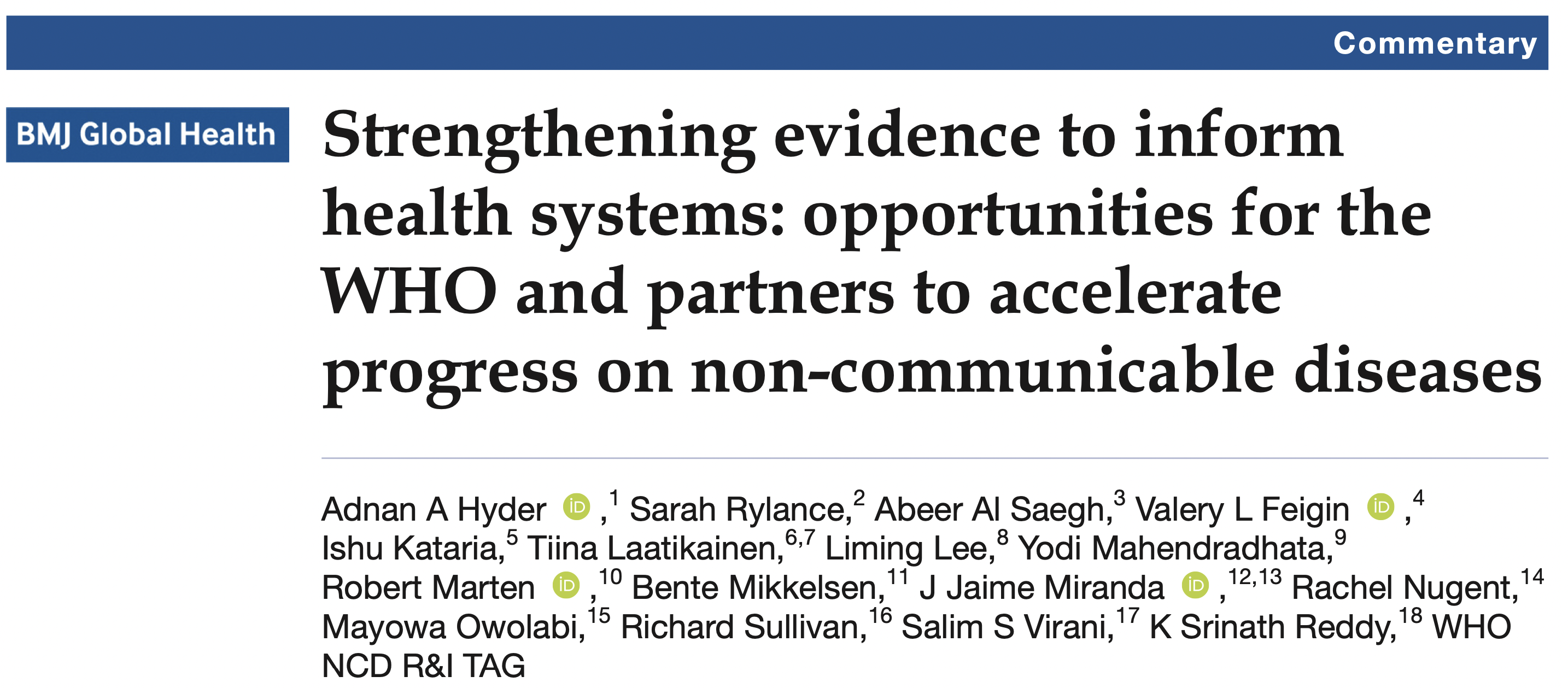United for Global Mental Health
4th Global Mental Health Advocacy Forum: Key Learnings and Take-Home Messages for Mental Health Advocates from the Forum’s Plenary Sessions
Report
05 Feb 2026
10 Oct 2023

The World Health Assembly endorsed the Global Action Plan for the Prevention and Control of Non-Communicable Diseases (NCDs) 2013–2020 (NCD-GAP), now extended to 2030. An evaluation of the NCD-GAP, published in 2020, found that research has been the weakest NCD-GAP objective in terms of implementation.
Implementation research, aligned with NCD-GAP, offers a pathway to accelerate progress in scaling cost-effective NCD interventions, demanding collaboration, stakeholder engagement, capacity strengthening and financial investment.
A renewed research agenda for NCDs is needed to answer the important research questions for resource-limited settings. These often relate to the social and commercial determinants of health, prevention of shared risk factors or management within the broader health system and how to implement integrated strategies at the primary healthcare level.
Contextualisation is imperative to translating knowledge into policy and impact. Research agendas should, therefore, be shaped by national and regional priorities.